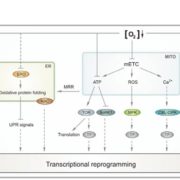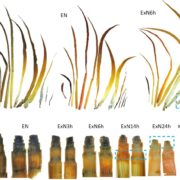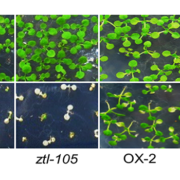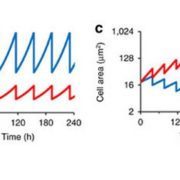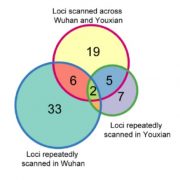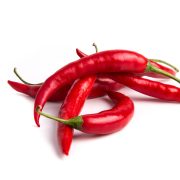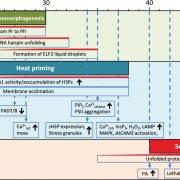Review: Transposable elements have role in aluminum resistance (J Exp Bot)
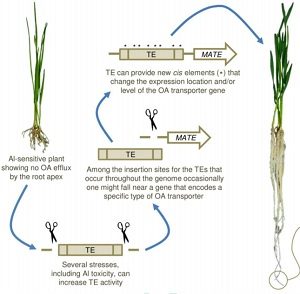 Phytotoxic aluminum can drastically harm plant roots, leading to decreased nutrient uptake, water absorption and yields. Many plant species efflux organic anions into the rhizosphere to reduce the toxic effects of aluminum. Some of the genes that encode transporter proteins which mediate organic anion release contain transposable elements in the coding sequences or in flanking regions. There are transposable element-induced mutations that modify the level or location of transporter-encoded gene expression, resulting in changes in organic anion efflux. This review by Pereira and Ryan covers the role of transposable elements in enhancing the adaptation of plants to aluminum stress. Transposable elements seem to be an important source of mutations that have co-opted organic anion transporter proteins with other functions to perform aluminum resistance-related roles. (Summary by Julia Miller) J. Exp. Bot. 10.1093/jxb/ery357
Phytotoxic aluminum can drastically harm plant roots, leading to decreased nutrient uptake, water absorption and yields. Many plant species efflux organic anions into the rhizosphere to reduce the toxic effects of aluminum. Some of the genes that encode transporter proteins which mediate organic anion release contain transposable elements in the coding sequences or in flanking regions. There are transposable element-induced mutations that modify the level or location of transporter-encoded gene expression, resulting in changes in organic anion efflux. This review by Pereira and Ryan covers the role of transposable elements in enhancing the adaptation of plants to aluminum stress. Transposable elements seem to be an important source of mutations that have co-opted organic anion transporter proteins with other functions to perform aluminum resistance-related roles. (Summary by Julia Miller) J. Exp. Bot. 10.1093/jxb/ery357



